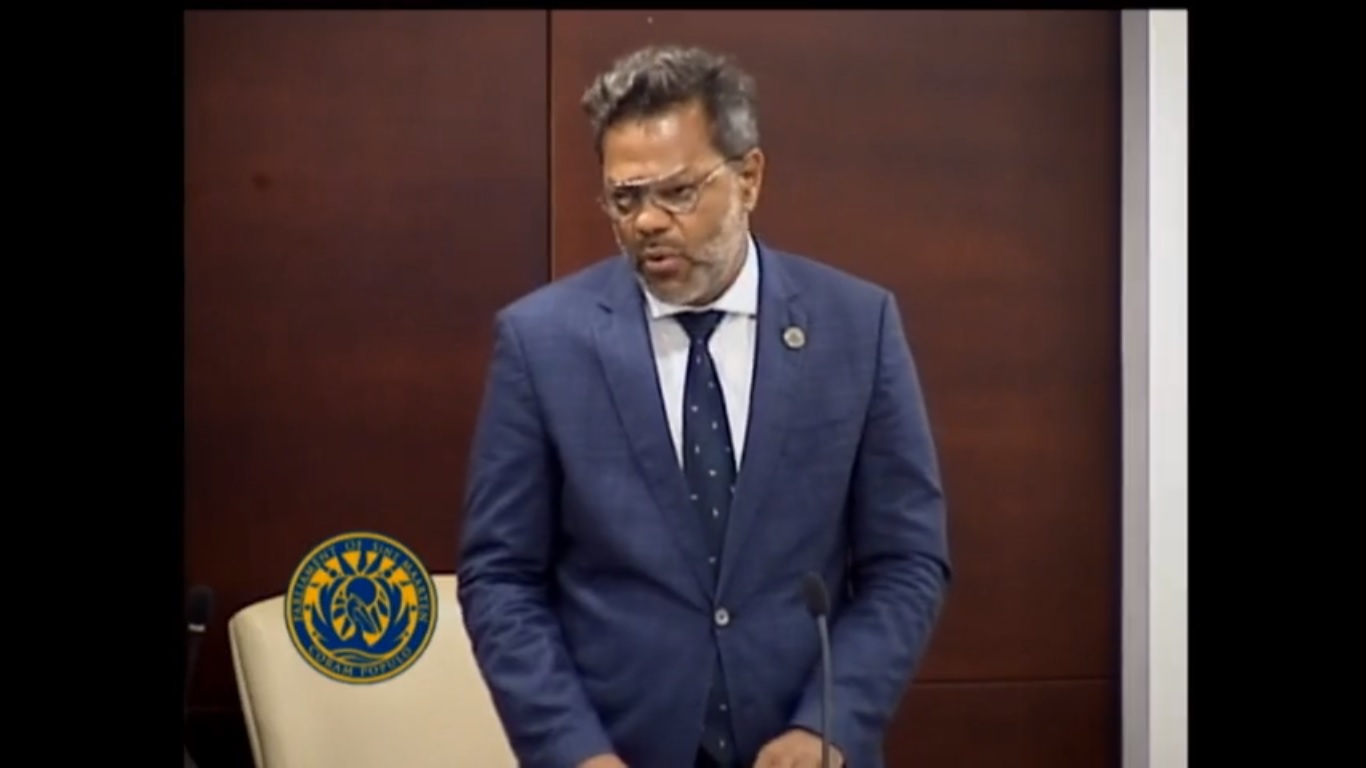MP Mercelina tackles national health insurance plan again

PHILIPSBURG – MP Luc Mercelina (United Democrats) repeated his objections against the introduction of a National Health Insurance (NHI) plan during the handling of the draft 2019 budget in parliament on Monday. “This will become the nightmare of our country,” he said.
Mercelina said that St. Maarten should meet ten requirements to make national health insurance a success – and that the country does not meet any of them. The MP listed ten conditions he came up with: the country has to be rich (St. Maarten isn’t), it has to be well-organized, have a low percentage of illegals and a very low percentage of undocumented people. Furthermore the country should not be located in a hurricane belt, it should not be vulnerable to the influx of political refugees, it should have secure and well-organized border control, a large population and a low poverty rate. Lastly, such a country should be part of a continent and not be an island like St. Maarten.
Mercelnia said that he sees “more and more Venezolanos in the street” (to emphasize that St. Maarten has a problem with political refugees) and that there seems to be a link between the NHI and the construction of the new hospital. “Who is trying to please who with this NHI?” he wondered.
Mercelina also said that increasing tariffs will not solve any problem in the healthcare sector. He supports the idea of increasing premiums instead.
When the Today newspaper interviewed Wynand van de Ven, a professor of Health Insurance at the Erasmus University in Rotterdam in January 2010, none of the conditions mentioned by Mercelina came up as an issue. Instead, Van de Ven said that financial sustainability is key for a national health insurance. “To achieve that, the NHI must behave like an active purchaser of care. It has to sign contracts, also for overseas care; otherwise the sky is the limit.”
Van de Ven also emphasized the importance of working together with surrounding small island nations to overcome the handicap of scale. In that sense he agrees with Mercelina: numbers do matter. “If you work together with others in the region that have similar problems your position becomes stronger. You are talking about a higher volume. This does not only apply to care, but also to medication. Against the monopoly of the pharmaceutical industry you have to create your own monopoly. Purchase medication together with other countries. The Netherlands has 17 million inhabitants, but it is doing the same, together with other European countries to get a better price for at times extremely expensive medication.”
Public Health Minister Emil Lee will address Mercelina’s concerns during the further handling of the draft budget.


























